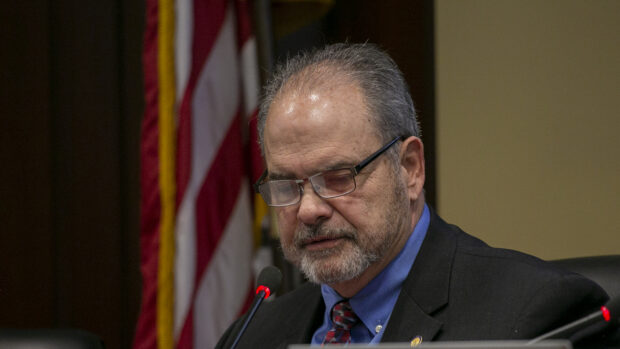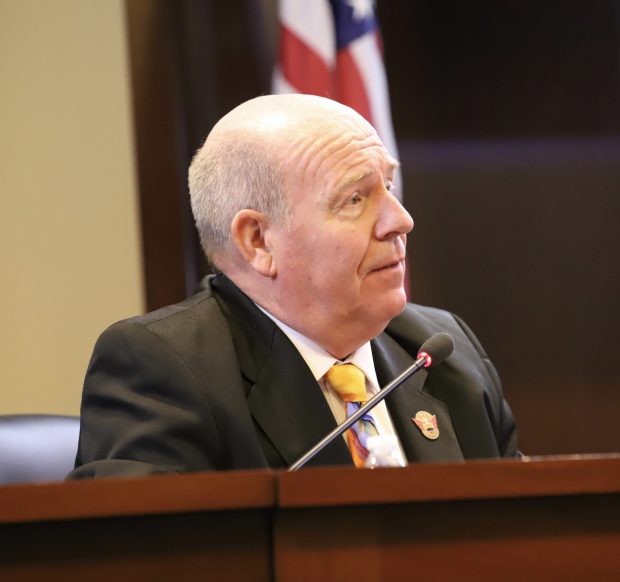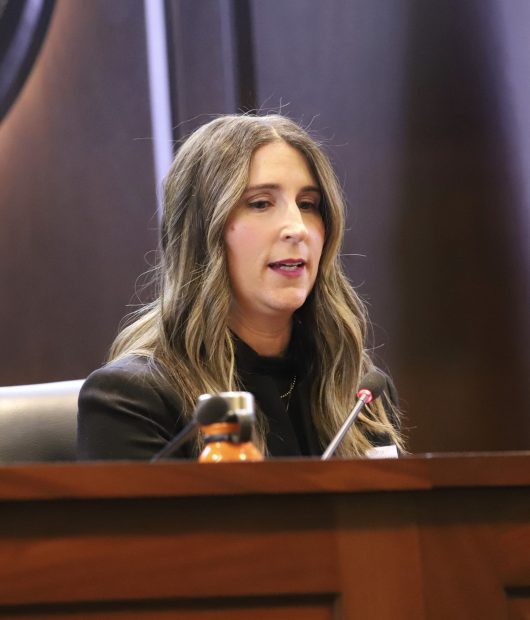The Legislature’s first Launch vote comes Friday morning, and it probably won’t be a cliffhanger.
The Joint Finance-Appropriations Committee is likely to give Gov. Brad Little every dime he wants: $70.8 million for grants to help high school graduates continue their education. JFAC members have already drawn up a motion to fully fund Launch.

“We’ve already done the work on it,” said Sen. Dave Lent, R-Idaho Falls, a JFAC member who also chairs the Senate Education Committee.
That’s the first step. The easy step. It’s tough to handicap what happens from there. The next steps will test an unproven budgeting process — and the political wills of some of the most powerful people in the Statehouse. A year after the Launch proposal survived a series of razor-thin votes at the Legislature, Year Two is sketchy as well.
Friday’s JFAC vote feels like a done deal. Fifteen of JFAC’s 20 members supported at least one of the two Launch policymaking bills last session. So Lent, a loyal Launch supporter, has ample cause for optimism.
Even House Speaker Mike Moyle knows what’s coming. Moyle, R-Star, has counted more than a few votes in his 26 years in the Statehouse, and fully expects a Launch budget to come out of JFAC Friday.

Moyle is no detached observer, however. He’s the most high-profile Launch opponent in the Statehouse. He speaks for a conservative wing of the Legislature that believes Launch could become a runaway giveaway — one $8,000 grant at a time. And he’s uniquely positioned to exert himself in the Launch debate.
Here’s why. The new budgeting process — one Moyle fully supports — will give the Legislature a clean vote to pass or reject followup spending bills. And that includes the Launch bill.
Launch funding has to stand on its own, because the program did not find its way into the $5.1 billion of “maintenance” budget bills the JFAC kicked out in January. Never mind that Launch isn’t exactly a startup. In September 2022, the Legislature committed $80 million a year into an in-demand careers fund, carving out a funding source for Launch. After the 2023 Legislature created Launch, the state’s Workforce Development Council hurried to roll out the program. As of Feb. 1, a startling 13,037 high school seniors have applied for a piece of Launch money.
Funding Year Two of Launch has, arguably, the feel of program maintenance — just not how the Legislature is defining maintenance. The process will provide Launch critics another up-or-down Launch vote.
Unless Moyle acts as a House of one. He has the power to route any bill to the House Ways and Means Committee, a speaker’s personal boneyard. And he isn’t ruling it out.
“If you think I wouldn’t do it, yeah, I’d do it,” Moyle told Idaho Education News Thursday. “I don’t care. I don’t like the program.”
For Moyle, the sideboards matter. He’s hearing some ideas that might make Launch more palatable — such as reining in a largely unelected Workforce Development Council, which has the authority to decide on the in-demand career pursuits that qualify for a Launch grant.
What isn’t clear yet — and might not be clear until the votes start — is what Launch skeptics do with a program they never liked in the first place. Do they try to dismantle the program outright, or do they try to tweak it instead?
Rep. Wendy Horman, JFAC’s House co-chair, thinks the time to kill the Launch program has come and gone. She likens Launch to Medicaid expansion — a program she opposed, but now is fully on the books. Similarly, she says, the Legislature made its Launch policy decisions in 2023.
“It’s the law, and I feel an obligation to support that commitment,” said Horman, R-Idaho Falls, who supported the second of the two Launch policy bills last year.

Sen. Lori Den Hartog, a Launch opponent, would like to see some changes to Launch. She doesn’t like the Workforce Development Council’s in-demand career list — calling it a “ridiculous” menu that doesn’t guide high school graduates toward career-technical courses or community college programs that provide valuable job skills. But no matter what changes, she plans to vote no. “As I told the governor’s office, ‘You’re going to make me bleed all over this again this year,’” said Den Hartog, R-Meridian.
House Education Committee Chairwoman Julie Yamamoto remains staunchly in favor of Launch, and says the flood of applications only underscores the need. She’s not averse to tweaking the program, after the first year. “At this point we haven’t even given it the opportunity to have wings,” said Yamamoto, R-Caldwell.
Those 13,000 applicants — high school seniors who may or may not be of voting age — will make it tough for legislators to kill Launch outright. If this Legislature doesn’t fund Launch this year, the grant dollars dry up, just in time for lawmakers to run for re-election in the May primaries and the November elections. Reneging on a promise of financial aid is not exactly a great way to win over voters.
Little has more or less made that point. Last week, he told Statehouse reporters that lawmakers oppose Launch at their peril. And as the Workforce Development Council processes an unexpected surge of applicants — way above the 7,000 to 9,000 applicants Little expected — the council also tallies the traffic by legislative district.
In Moyle’s District 10, 547 high school seniors have applied as of Feb. 1, ranking third among the state’s 35 legislative districts.
If Moyle is feeling the pressure from the graduating seniors and parents in his suburban district, he’s not letting on. “The pressure is to make sure we do it right.”
The Legislature will begin crafting Launch 2.0 Friday morning. But this debate is only getting started.
Kevin Richert writes a weekly analysis on education policy and education politics. Look for his stories each Thursday.
